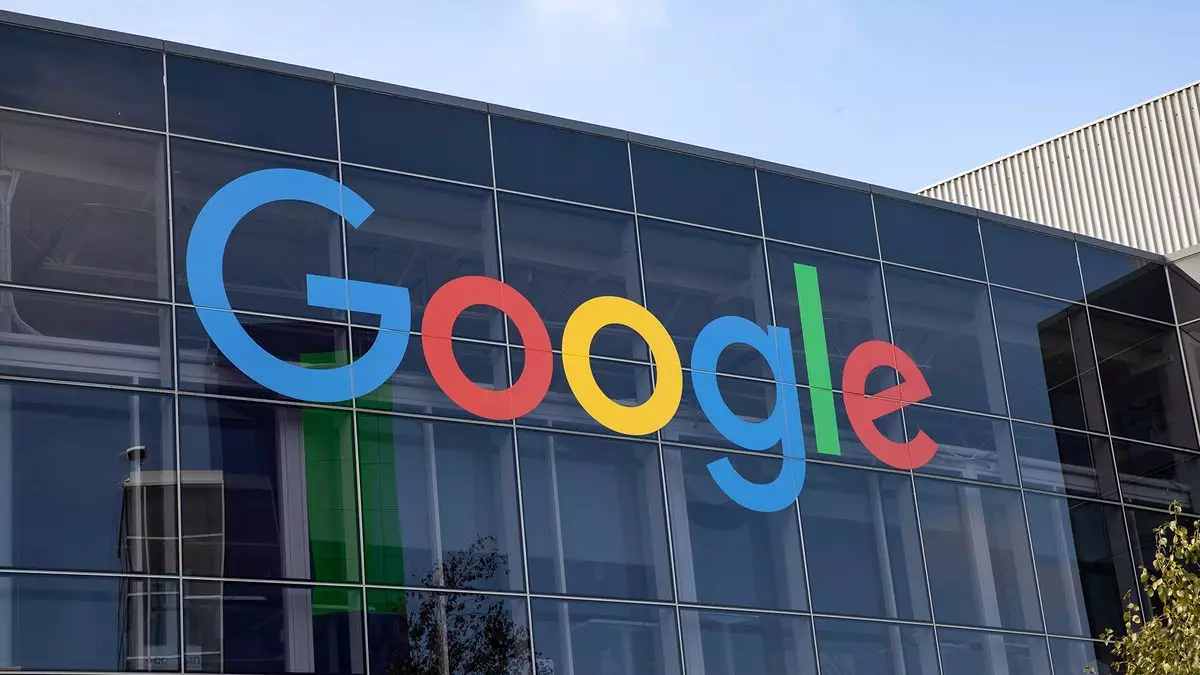In an era marked by stringent scrutiny of corporate practices, particularly in the technology sector, Google has found itself navigating a complex legal landscape. Recently, the European General Court made headlines by overturning a substantial €1.49 billion fine imposed by the European Commission (EC) in 2019 due to alleged antitrust violations. This article dives deep into the implications of this ruling for Google, examining the broader narrative of regulatory oversight in the tech industry while assessing how this decision intersects with ongoing concerns over monopolistic behaviors.
In 2019, the EC accused Google of abusing its dominant position in the online advertising market by enforcing exclusive agreements that hindered competition. The crux of the EC’s argument highlighted practices that effectively barred rivals from gaining traction in lucrative advertising spaces, particularly on websites owned by publishers who were in contractual agreements with Google. These exclusivity arrangements created a significant entry barrier, leading the EC to conclude that Google’s practices not only deterred innovation but also stifled competition, harming both advertisers and consumers in the process.
The EC described Google’s approach as a deliberate strategy to bolster its market control. The words “exclusive supply obligation” illustrated the severity of the case, framing Google not just as a participant in the market but as a gatekeeper that manipulated advertising dynamics to its advantage. The stakes were high, not merely for Google’s bottom line but for the integrity of the digital advertising landscape itself.
The recent ruling from Europe’s second-highest court, the General Court, has marked a critical turning point. The judges, while acknowledging the EC’s position on Google’s market dominance, concluded that the evidence presented did not convincingly demonstrate that Google’s practices had stifled innovation or significantly impacted consumer welfare. The court claimed that the EC failed to link the alleged misconduct to tangible harm within the market, a key factor in antitrust cases.
While this reversal can be perceived as a win for Google, especially in an environment where the company faces potential losses in other antitrust litigations—including a hefty €2.4 billion penalty recently upheld—the broader narrative presents a more complex reality. Legal victories in antitrust cases can be fleeting, illustrating the precarious nature of corporate governance in tech. Google’s triumph over this specific fine raises questions about the enforceability of antitrust laws and the intricate balancing act regulators must perform to foster competition while enabling innovation.
As tech giants like Google grapple with ongoing legal challenges—from European scrutiny to ongoing accusations in the U.S.—the implications stretch beyond individual fines. The infrastructure of digital advertising, much like the broader tech ecosystem, is interwoven with unique challenges that require nuanced regulatory approaches.
The Digital Market Act, alongside ongoing scrutiny by authorities, suggests a shift toward a more aggressive regulatory environment. These developments signal an increasing recognition of the need to govern anticompetitive practices rigorously. While some might argue that a few billion euros in fines are negligible for a company with Google’s resources, the essence lies in the message these rulings convey: no company, regardless of its size, stands above the law.
Furthermore, the enduring debates about consumer welfare often hinge on how monopolistic practices can ultimately lead to reduced choices and higher prices. Critics of Google suggest that the tech giant’s market strategies undermine smaller competitors and inhibit innovation. Thus, while legal victories may multiply for Google, the fundamental questions regarding market fairness and consumer rights loom larger.
In the wake of the recent overturning of the €1.49 billion fine, Google stands at a crossroads. The company may celebrate this temporary reprieve, but the ongoing challenges and investigations reveal a pervasive narrative of regulatory vigilance within the tech industry. Whether this ruling represents a turning point toward a more lenient approach to regulation or merely a pause before more stringent oversight remains to be seen.
Ultimately, Google’s journey through the murky waters of antitrust scrutiny will likely shape its corporate strategy for years to come. As the tech world evolves and regulatory frameworks tighten, major players like Google must adapt and reevaluate their practices to ensure compliance and maintain their competitive edge. The discourse surrounding such issues will undoubtedly continue to evolve, reflecting a dynamic interplay between regulatory bodies, corporate giants, and consumer expectations.

